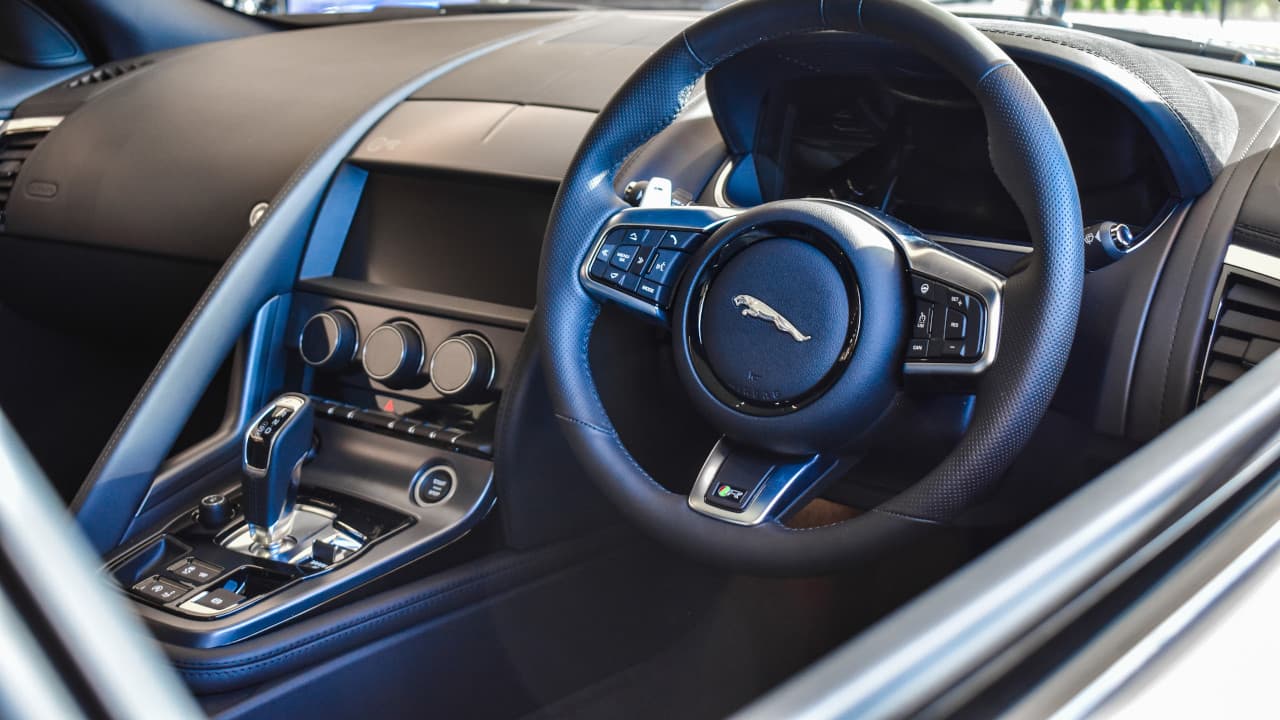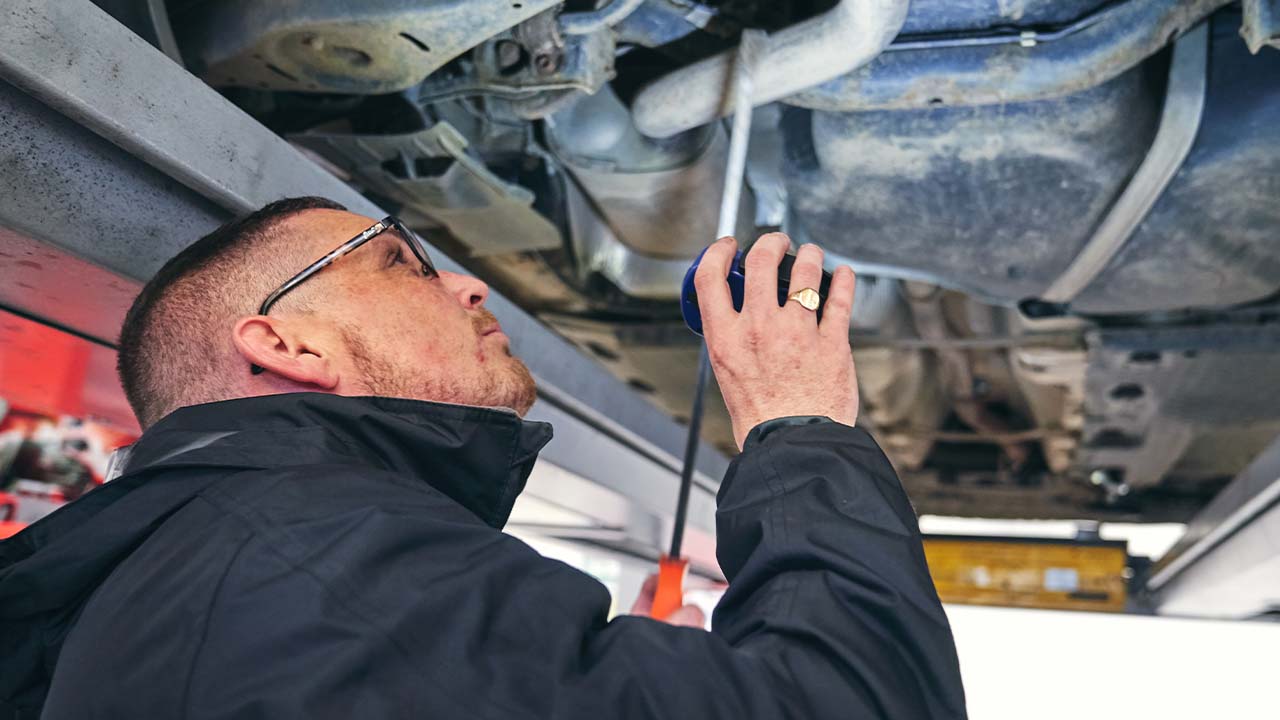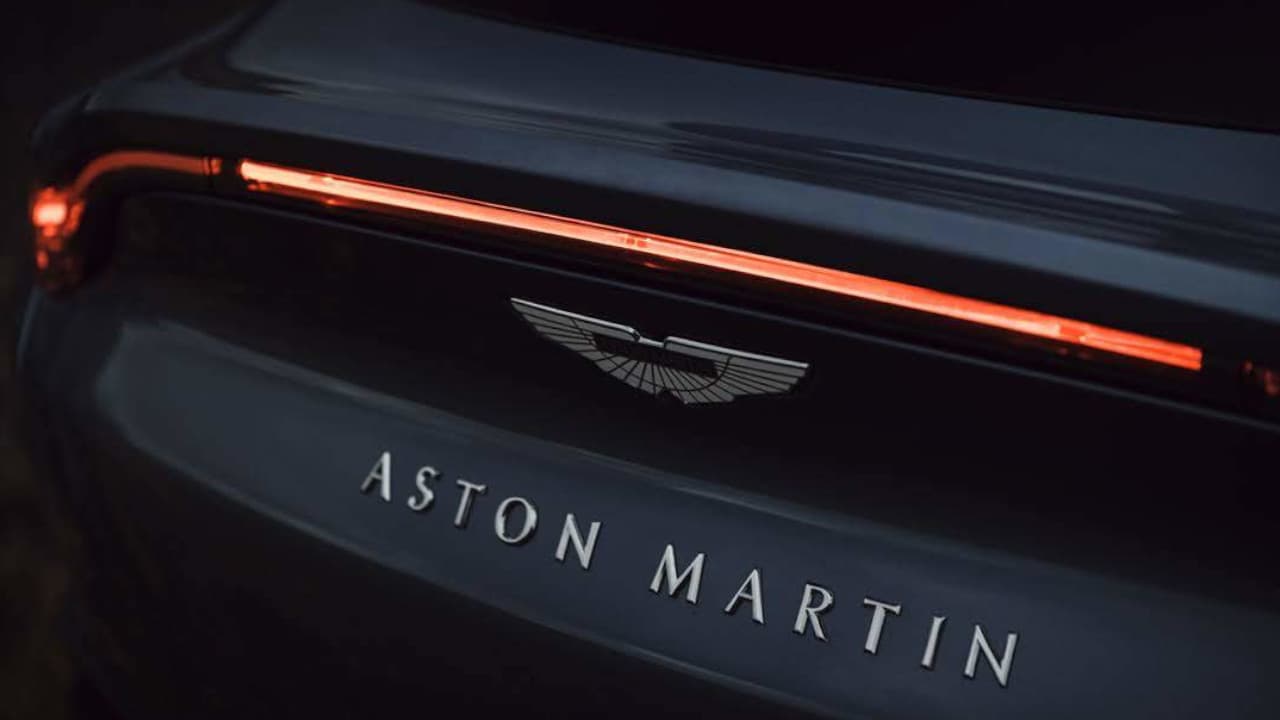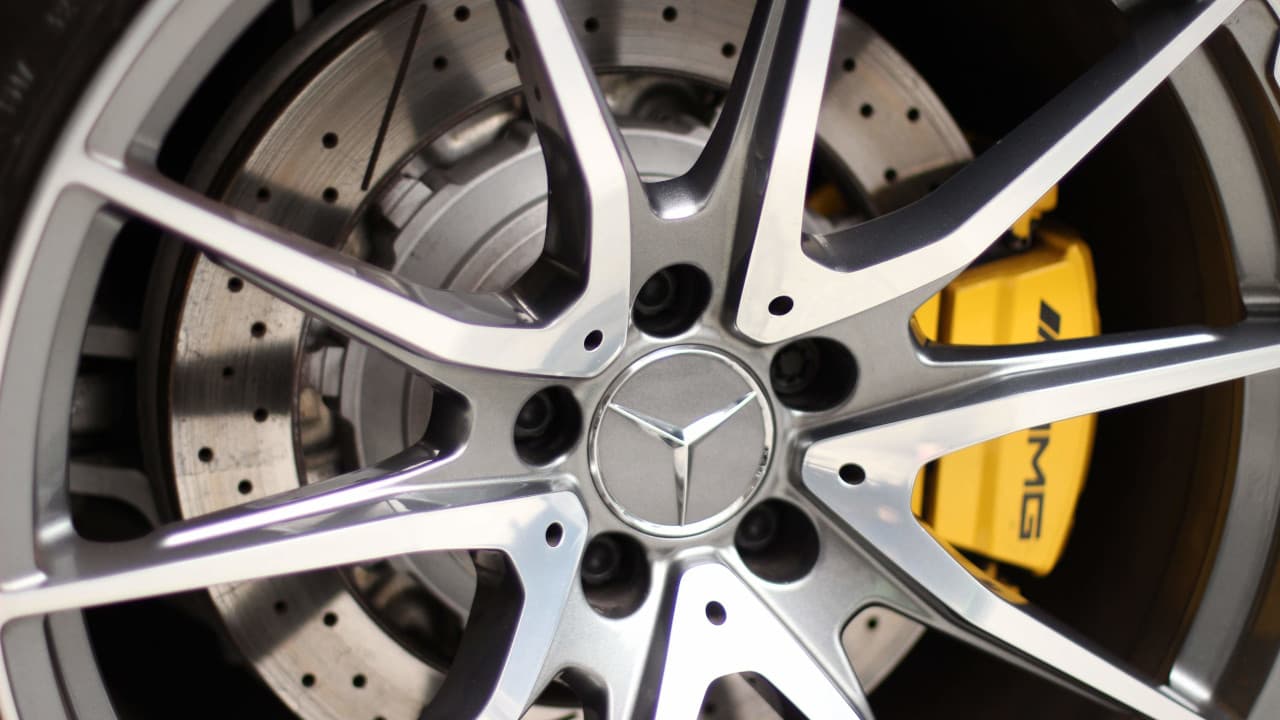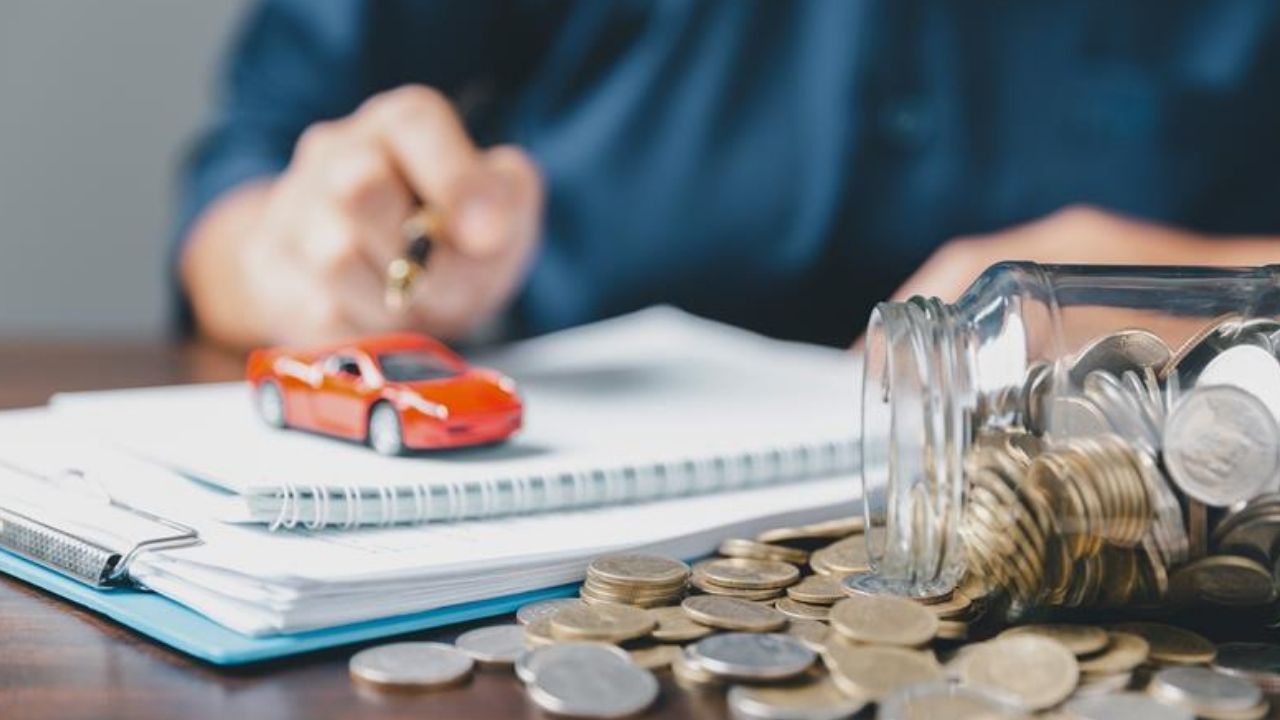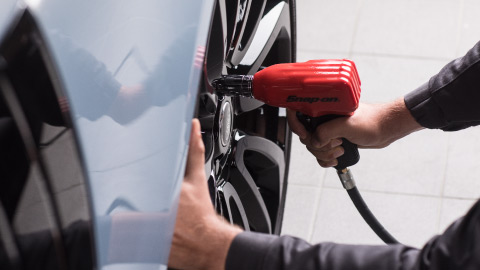How to Increase Your Car's Resale Value in 2025
10th Apr 2025
Whether you are preparing to sell your car, looking to part-exchange, or simply trying to understand your car’s current value, knowing where you stand is important.
Vehicle depreciation is a reality most car owners face, but how much your car is worth can depend on far more than just age or mileage. From brand prestige and condition to service history and optional extras, there are a wide variety of factors that can determine a vehicle's value.
In this guide, we will break down the key elements that influence your car’s worth and offer practical tips to help you maximise its value when it is time to sell or trade in.
Contents
- What impacts the value of a car?
- How to increase car resale value
- How to value a car
- How do insurance companies value your car?
- What is the trade-in value of my car?
- Frequently asked questions
What impacts the value of a car?
Your car's value is not determined by just one element. Instead, a combination of key factors work together to influence how much your vehicle is worth. These range from physical aspects like mileage, condition, and service history, to external factors such as brand reputation, market demand, and more.
The way a car has been driven and maintained, the number of previous owners, and its original factory specification also contribute to its desirability in the used car market, and play a critical role in determining your final valuation.
Age
As vehicles age, their technology becomes outdated, their components wear down, and their appeal to modern buyers may diminish. Even with perfect upkeep, an older car may lack the fuel efficiency, connectivity, or safety features found in a newer model.
Though all cars naturally depreciate over time, not all cars do so equally. Premium vehicles from brands like Porsche or Aston Martin often retain more value due to exclusivity and desirability, while budget models may drop quicker.
That said, older cars that are well-maintained can still be very desirable in the used market, especially if they have clocked fewer miles than average and have a full service record. They are often more affordable to buy, cheaper to insure, and are increasingly sought after by buyers looking for value rather than the latest features.
Condition
A car’s physical and mechanical condition plays a significant role in determining its market value, and applies to both aesthetics and functionality. Bodywork damage, paint scuffs, worn tyres, chipped windscreens, or damaged upholstery all have a negative impact on valuation. Buyers naturally gravitate towards well-cared-for vehicles because they suggest careful ownership and fewer future costs.
Mechanically, issues like worn suspension, faulty electrics, or a failing clutch are red flags. Even if they seem minor, these can reduce the price significantly, as most prospective buyers or dealerships will factor in repair costs when negotiating.
Keeping your car clean, addressing minor repairs early, and booking regular maintenance not only prevents small issues from escalating, but also preserves your vehicle’s value. Vehicles that look and drive well often sell faster and for better prices than those that have been neglected, even if the differences are minor on paper.
Service History
A complete and traceable service history is among the top features that buyers look for. It shows that the car has been routinely maintained, reducing the likelihood of hidden problems. Incomplete records, missed services, or inconsistent mileage logs can create doubt, even if the car itself is in good shape.
The service book, receipts, MOT certificates, and even parts invoices all contribute to proving the vehicle’s care history. When these are well-organised and up to date, they act as a seal of reassurance for buyers, often justifying a higher price.
Mileage
While age is an important contributor to a car's value, mileage is equally important. Two cars of the same model and year can have drastically different values depending on how far they have been driven. Mileage reflects usage and wear and tear.
Cars with lower mileage tend to attract more attention, as buyers perceive them as having more life left. Higher-mileage vehicles, even if in good mechanical condition, may struggle to fetch strong resale prices because of the expectation that components like brakes, suspension, and the clutch may need replacing soon.
That said, mileage must be considered alongside service history. A high-mileage car that has been meticulously maintained can still be a smart buy, and often warrants a better price than a lower-mileage car with gaps in its records.
Number of previous owners
The number of previous owners can influence how a car is perceived in terms of care and reliability. Generally, a vehicle that has had fewer owners is viewed more positively, as it suggests consistency in maintenance and use. Multiple changes in ownership over a short period may raise concerns about the car’s condition, reliability, or running costs.
Fewer owners often imply that the car has been kept for longer periods, which usually goes hand in hand with more attentive maintenance. It also gives buyers a clearer, more traceable history, making the vehicle more appealing when it comes time to sell.
Keeping a full record of ownership and presenting it clearly can help reinforce trust and protect the car’s resale value.
Brand and Rarity
Prestigious manufacturers such as Aston Martin, Porsche, and McLaren often maintain higher values compared to mainstream luxury brands like BMW or Audi. This is partly down to perceived quality, performance, heritage and desirability, but also due to limited production numbers in some cases.
Rarity is another factor, as even within mass-market segments, certain limited-production models can appreciate or lose value slowly. Examples include performance variants like the BMW M range or Audi RS line-up. When a car is harder to find, demand often exceeds supply, especially among enthusiasts, which can boost value considerably.
That said, rarity is not always a guarantee of higher worth. Obscure cars with limited support, low parts availability, or unpopular styling can sometimes lose value faster. But in general, cars that are known for exclusivity and strong brand equity will almost always be worth more.
How to increase car resale value
Boosting the resale value of a car is not necessarily about major upgrades. It is more about consistent upkeep, strong presentation, and having the right documentation. A well-maintained vehicle with minimal wear and tear, a full service history, and no outstanding repairs is far more appealing to potential buyers and often commands a higher price.
If you are looking to sell your car in the near future, there are still several effective steps you can take right now. Start by addressing any visible imperfections. Fixing minor scratches, dents, or interior damage can significantly improve the appearance of the vehicle. A clean and tidy car with a presentable interior and fully functioning features will stand out in both online listings and on dealer forecourts.
It is also worth considering a professional valet service. A thorough clean, inside and out, can refresh the car’s appearance and make it look much more cared for. First impressions are important, and a professionally detailed car can help create a positive impact on potential buyers.
Having a complete folder of service records, receipts, MOT certificates, and ownership documents also demonstrates transparency and adds value. Even if the car has not been owned for long, showing a clear paper trail builds trust with buyers. If any improvements or high-quality extras have been added, keeping the receipts can support your asking price.
For those who are planning ahead, regular maintenance remains essential. Keeping up with scheduled servicing, using quality replacement parts, and staying on top of MOT requirements will help ensure the car remains in good mechanical condition. This approach not only reassures future buyers but can also lead to a better return when it is time to sell.
How to value a car
If you are looking to sell your car, understanding its current market value is an important first step, and there are a few different ways you can go about it.
If you would prefer to carry out some manual research, you can do so by checking online information, auction sites, or car selling platforms to compare similar makes, models, and conditions. This can give you a rough ballpark figure, especially if you are planning to sell your car privately.
For a more accurate and up-to-date valuation, using an online valuation tool can be helpful. These tools use live market data and buyer trends to provide a tailored estimate based on your car’s details, and they are particularly helpful if you would like to sell your car to a dealership.
Our Sell Your Car tool offers a quick and easy way to get a valuation. By entering just a few simple details, such as your registration number and mileage, you will receive an instant estimate that is valid for seven days You can also include extra information like cosmetic condition or any upgrades, helping to generate the most accurate figure possible.
How do insurance companies value your car?
Insurance companies determine the value of your car based on its market value at the time of a claim, rather than what you paid for it. This figure is often based on current market trends, recent sale prices for similar vehicles, mileage, service history, and overall condition.
In the event of a total loss or write-off, the insurer will assess what your car would have reasonably sold for immediately before the incident. If your car is deemed a Category S (structural) or Category N (non-structural) write-off, this will be recorded on the vehicle history and significantly reduce resale value, even if it has been repaired to a high standard.
Insurance valuation can sometimes lead to disputes, particularly if the owner believes the car is worth more than what the insurer offers. In such cases, providing evidence of similar cars listed for sale, recent repairs, or upgrades can help in appealing the valuation.
What is the trade-in value of my car?
The trade-in value is the amount a dealer offers for your current vehicle when you are looking to switch to another one. This is typically referred to as a part exchange, where the value of your existing car is used to reduce the price of your next vehicle as part of the same transaction.
Choosing to trade in a car can be a convenient option, particularly if you want to simplify the process and avoid the time and effort involved in a private sale.
A car's trade-in value depends on several factors, including its condition, mileage, age, service history, and current demand in the used car market. Well-maintained vehicles with low mileage and a full service record are generally offered stronger valuations.
Scrap value is usually based on the raw materials and recyclable parts your car contains. Age, condition, and whether it is complete or missing major components can influence the final price offered by scrappage services. Many retailers also offer scrappage schemes that provide enhanced part-exchange rates for scrap vehicles.
Cars typically lose value each year due to depreciation, which is affected by factors such as mileage, condition, brand reputation, and market trends. On average, a car depreciates by 15 to 35 percent in its first year, and then around 10 to 15 percent annually after that, with a potential loss of up to 50 percent or more over three years.
A car with a Category S (structurally damaged) history will generally be worth less than a similar car with no damage record. Buyers may be cautious about the long-term reliability and resale potential, even if repairs have been completed.
Value your car with Stratstone
Although there is not much you can do about the depreciation of your car, keeping on top of maintenance and taking care of the bodywork is essential for maximising its value.
Have you ever wondered what your car may be worth? Our Sell Your Car service gives you a no-obligation valuation for your car in minutes. For more car selling advice and tips, such as selling a car on finance, keep an eye on our blog section.


